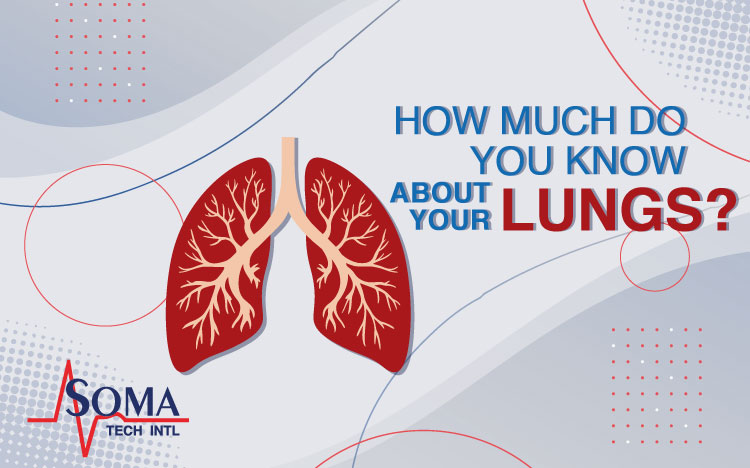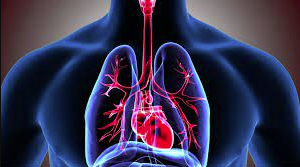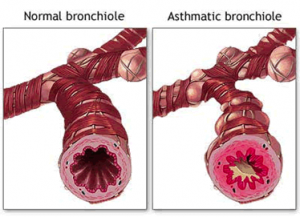How Much Do You Know About Your Lungs?
May 23, 2023
1. Lung Health Awareness Month
2. How to Keep Your Lungs Healthy
3. Asthma and Lung Health
4. Allergies and Lung Health
5. Final Thoughts
Lung Health Awareness Month
Lung Health Awareness Month is an observance held annually to raise awareness about lung health and promote education on respiratory diseases. It is an opportunity to educate the public about the importance of maintaining healthy lungs, preventing respiratory illnesses, and supporting individuals affected by lung-related conditions. During this month, various organizations, healthcare providers, advocacy groups, and government agencies collaborate to highlight the significance of lung health and address the challenges associated with lung diseases.
How to Keep Your Lungs Healthy
Keeping your lungs healthy is essential for overall well-being and can help reduce the risk of respiratory illnesses. Here are some key ways to promote lung health:
- Avoid smoking: Smoking is the leading cause of lung-related diseases, including lung cancer, COPD, and respiratory infections. If you’re a smoker, quitting is the best thing you can do for your lung health. Avoid exposure to secondhand smoke as well.
- Maintain clean indoor air: Make sure your indoor environment is free from pollutants that can irritate the lungs. Keep your home well-ventilated, avoid using harsh chemicals or strong cleaning products that emit fumes, and consider using air purifiers if necessary.
- Protect against occupational hazards: If you work in an environment with potential lung irritants, such as chemicals, dust, or fumes, take appropriate precautions. Use protective equipment, follow safety guidelines, and seek guidance from your employer on minimizing exposure.
- Exercise regularly: Engaging in regular physical activity can help improve lung capacity and strengthen respiratory muscles. Aim for at least 30 minutes of moderate-intensity aerobic exercise most days of the week.
- Practice good respiratory hygiene: To prevent respiratory infections, such as colds, flu, or COVID-19, follow good respiratory hygiene practices. Cover your mouth and nose with a tissue or your elbow when coughing or sneezing, and wash your hands frequently.
- Avoid exposure to air pollution: Limit your exposure to outdoor air pollution as much as possible. Stay informed about air quality in your area and try to avoid going outside during times of high pollution. If necessary, wear a mask that filters out pollutants.
- Get vaccinated: Stay up to date with recommended vaccinations, including those for influenza and pneumonia. Vaccines can help prevent respiratory infections and reduce their severity if you do get sick.
- Practice deep breathing exercises: Deep breathing exercises can help improve lung function and capacity. Practice techniques like diaphragmatic breathing or pursed lip breathing regularly to strengthen your respiratory muscles.
- Regular check-ups: Visit your healthcare provider for routine check-ups and screenings. Regular lung function tests can help detect any abnormalities early on, allowing for timely intervention if necessary.
Asthma and Lung Health
Asthma is a chronic respiratory condition that affects the airways in the lungs. It is characterized by inflammation and narrowing of the airways, which can lead to various symptoms and difficulties in breathing. Here’s how asthma affects the lungs:
- Inflammation: People with asthma have chronic inflammation of the airways, which makes them more sensitive and prone to react to certain triggers. This inflammation causes the airway walls to become swollen and produce excess mucus, narrowing the air passages.
- Airway constriction: When triggered by specific factors, such as allergens, irritants, exercise, or respiratory infections, the airway muscles can constrict or tighten. This constriction reduces the diameter of the airways, making it harder for air to pass through.
- Increased mucus production: In response to inflammation, the airway cells produce more mucus than usual. Excessive mucus can further block the airways, making breathing more difficult and contributing to coughing and wheezing.
- Shortness of breath: The narrowing of the airways and increased resistance to airflow can lead to a feeling of breathlessness or difficulty in getting enough air into the lungs. This sensation of shortness of breath can range from mild to severe and may vary over time.
- Coughing: Asthma-related coughing is often worse at night or early in the morning. The cough may be persistent and may be the only symptom in some individuals, especially in cough-variant asthma.
- Chest tightness: Asthma can cause a sensation of tightness or discomfort in the chest due to restricted airflow and inflammation in the airways. It can feel like someone is squeezing or sitting on the chest.
- Exacerbations or asthma attacks: Asthma symptoms can flare up and worsen suddenly, resulting in an asthma attack or exacerbation. During an attack, the airway constriction and inflammation become severe, making it extremely difficult to breathe. Emergency medical attention may be required in severe cases.
It’s important to note that asthma symptoms and their severity can vary among individuals. Some may experience symptoms only during certain triggers or periods, while others may have persistent symptoms. The management of asthma typically involves a combination of medications, avoidance of triggers, and an individualized asthma action plan developed in consultation with a healthcare professional.
Allergies and Lung Health
Allergies can have various effects on the lungs, particularly for individuals with respiratory conditions such as asthma or allergic asthma. When a person with allergies comes into contact with an allergen, their immune system reacts by releasing substances like histamine, which can lead to inflammation and other responses in the airways. Here are some ways allergies can affect the lungs:
- Allergic rhinitis: Allergies often manifest as allergic rhinitis. When allergens such as pollen, dust mites, or pet dander are inhaled, they can trigger symptoms like sneezing, a runny or stuffy nose, itching, and postnasal drip. These symptoms can indirectly affect the lungs by causing throat irritation, coughing, and exacerbating existing respiratory conditions.
- Asthma exacerbation: Allergies and asthma often go hand in hand. Allergic triggers, such as pollen, mold spores, or pet allergens, can induce an asthma attack or worsen existing asthma symptoms. This is known as allergic asthma. When allergens enter the airways, they can trigger inflammation and cause the muscles around the airways to constrict, resulting in symptoms such as wheezing, coughing, shortness of breath, and chest tightness.
- Allergic bronchitis: Allergic bronchitis refers to inflammation of the bronchial tubes caused by an allergic reaction. It can occur when allergens irritate the bronchial lining, leading to symptoms similar to those of bronchitis, such as coughing, wheezing, and phlegm production.
- Increased susceptibility to respiratory infections: Allergic reactions in the respiratory system can weaken the lung’s defenses, making individuals more susceptible to respiratory infections such as colds, sinusitis, or bronchitis.
- Exercise-induced bronchoconstriction: For some individuals with allergies, physical activity or exercise can trigger asthma symptoms or exercise-induced bronchoconstriction. The increased breathing rate during exercise can cause the airways to narrow, leading to coughing, wheezing, and shortness of breath.
It’s important to note that not everyone with allergies will experience significant lung-related symptoms or develop asthma. The severity and impact on the lungs can vary among individuals. If you have allergies and are concerned about their effect on your lungs, it is recommended to consult with a healthcare professional who can provide a proper diagnosis and appropriate treatment options.
Final Thoughts
Lungs, often overlooked, play a crucial role in our well-being. Let’s prioritize lung health at home and raise awareness this month. Share your tips for maintaining healthy lungs and tell us about your personal experiences overcoming allergies and asthma. Together, we can support each other in living happy and healthy lives!
Explore Other Blog Items By Category
Recent Posts


EKG vs ECG | What’s the Difference Between ECG and EKG?





